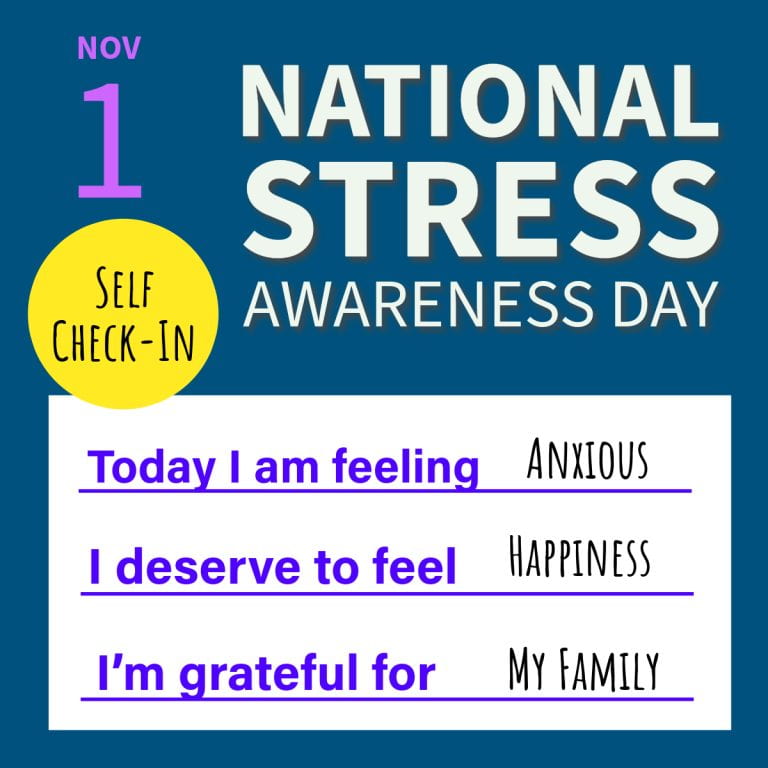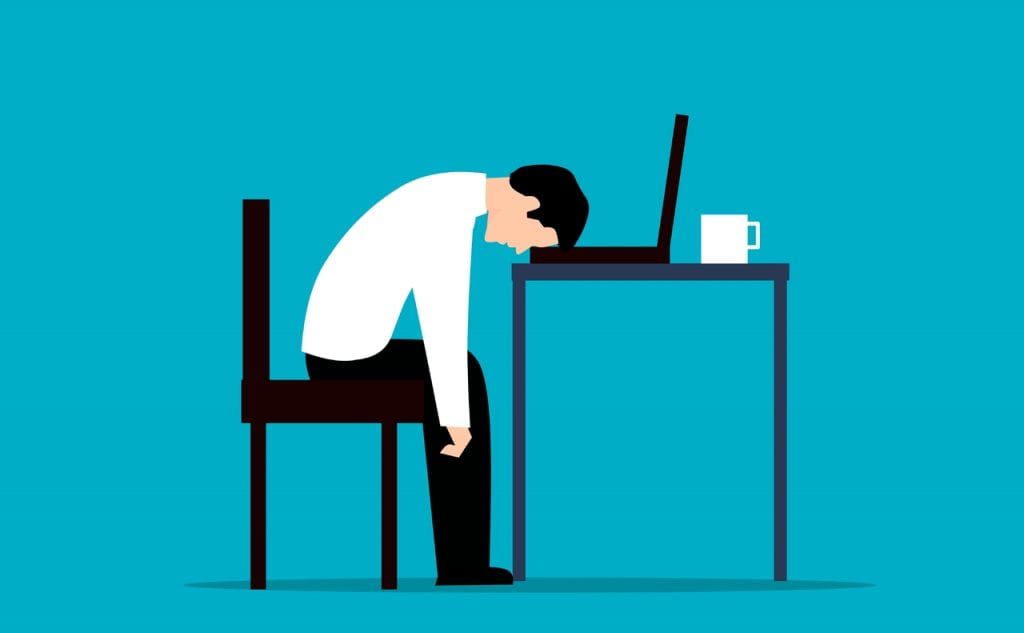The weeks between Thanksgiving and winter break can be a daunting and stressful time as we race to the end of the fall semester. Stress can have negative impacts on our body. Too much stress can lead to headaches, insomnia, changes in our mood, high blood glucose or blood pressure levels and more. (Pietrangelo, 2020) There are many ways to reduce stress and take care of yourself during this hectic time. Here are a few ways to help you stay healthy during the next few weeks.
It is easy to forgo sleep when you’re studying for exams or writing end of semester papers. But getting enough sleep can significantly reduce stress and provide you with enough energy for the coming days. The Department of Health and Human Services says that getting enough sleep can lower risks of developing serious health problems, reduce stress and improve mood and help with the decision making process. (U.S. Department of Health and Human Services, 2022) Creating and applying a sleep routine to your daily life may seem difficult, but if done consistently you’ll notice an improvement in the quality of your sleep. To develop a better relationship with sleep, consider dedicating a few minutes of ‘wind down’ time before you go to bed. During this time, accomplish tasks that require little effort or energy, like reading, planning your to-do list for the next day or writing in your journal. Avoid smart devices or TV during this time. If you have trouble falling asleep, try listening to gentle music, such as classical, jazz or lo-fi. Or, put on a podcast such as ‘The Sleepy Bookshelf,’ ‘Sleep With Me’ or ‘Get Sleepy.’ Set a ‘sleep timer’ so the music or podcast turns off automatically and make sure to keep the volume settings low so the music or show doesn’t distract you.
While the end of the semester may feel like a time for self-isolation and solo studying, this is the perfect opportunity to lean into your community and reach out for support. Organize study sessions with your classmates and reserve space in one of Himmelfarb’s study rooms. If you want to understand the noise level standards for the library, visit our recent Studying at Himmelfarb? Know Our Zones! post. If you’d like to socialize without worrying about class work, plan a lunch or dinner break with a friend. Call a relative or friend who lives far away, or set aside time for a virtual movie night. Connecting with your community is a great way to take your mind off of school and can also reduce the pent up anxiety you may feel. Speaking to your friends, family or other loved ones may provide you with the space to talk through mental or emotional walls, thus allowing you the ability to return to your work with a clearer understanding of what needs to be accomplished.
Breaking down your assignments into smaller, manageable pieces is a great way to reduce stress and anxiety. Create a roadmap or plan to help you complete your work and set a daily goal of accomplishing 1-2 sections until you reach the end. Or write a to do list in the morning and rank your list items from highest to lowest priority. By checking off smaller tasks, you’ll progress through your work without feeling overwhelmed.
Lastly, December 1-16, George Washington University and the Division for Student Affairs will hold a series of end of semester events to help students unwind and de-stress. The university’s ‘Midnight breakfast’ will take place on December 12 at 9 p.m. in the University Student Center. There will be food from vendors like Insomnia Cookies, Domino’s Pizza and Kilwin’s. Entertainment will include a gaming station, karaoke, a ‘Build-A-Study Buddy’ area and coloring; there will also be opportunities to win prizes such as a limited edition ‘Midnight Breakfast’ shirt, an Ipad and more. If you’re unable to attend this event, there are other opportunities to engage in fun and relaxation. December 5 and 12 there will be free chair massages at District House B205. December 10, take a walk to Roosevelt Island or attend an improv show at the University Student Center amphitheater organized by [insert here] improv on December 9. Visit ‘The Final Lap’ webpage for a full list of planned activities!
The Counseling & Psychological Services (CAPS) has additional stress management resources available. If you need academic support, the staff at Himmelfarb are available to provide assistance whether it’s fulfilling an interlibrary loan request, providing a reference service or helping you create a 3D print model. If you have any stress management suggestions, please feel free to share them in the comments! We hope that you accomplish all of your work before the end of the semester while also finding time to honor your basic needs and get some well-deserved rest!
References:
U.S. Department of Health and Human Services. (2022). Health Living: Get Enough Sleep. https://health.gov/myhealthfinder/healthy-living/mental-health-and-relationships/get-enough-sleep




